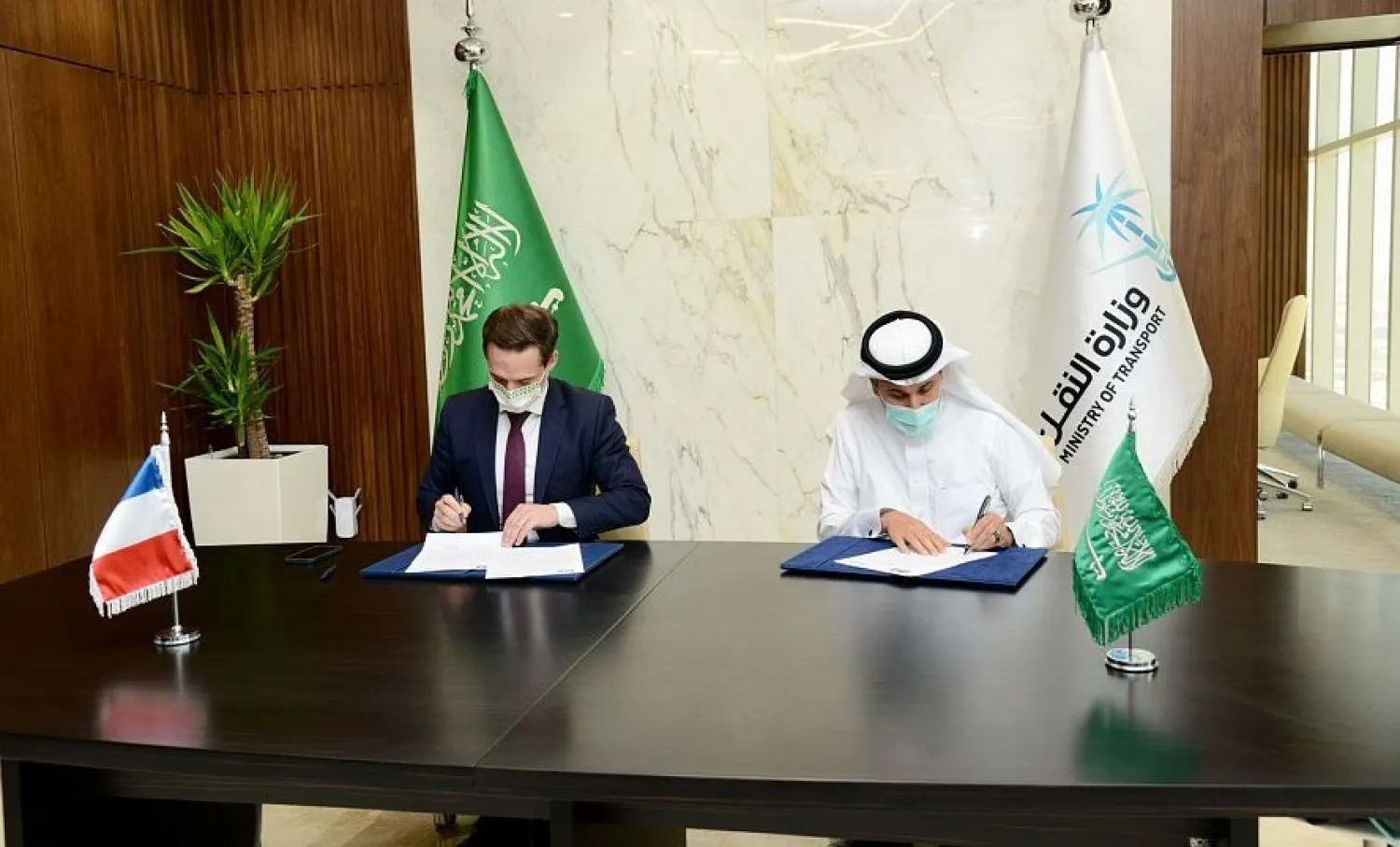French President Emanuel Macron will visit Saudi Arabia next year to further boost the strategic partnership between the two countries and create long-term sustainable development, announced French Transport Minister, Jean-Baptiste Djebbari.
The Minister told Asharq Al-Awsat that he discussed issues of bilateral interest with the Saudi Minister of Transport and Chairman of the Board of Directors of the General Authority of Civil Aviation Saleh al-Jasser.
On Sunday, Djebbari and Jasser signed a joint cooperation agreement in civil aviation, air transport programs, and cooperation in safety and security projects in the aviation sector.
The agreement includes an executive program to enhance cooperation between the two sides in all transport and logistics systems.
It also takes advantage of modern and future technologies in developing multiple modes of transportation and contributes to achieving the objectives of the Saudi national strategy for transport and logistics to consolidate the Kingdom's position as a global logistics hub.
Djebbari explained that he discussed with Minister of Investment Khalid al-Falih bolstering joint investments in areas of high added value, especially technological industries, artificial intelligence, and infrastructure, in light of giant projects seeking digitization and automation, such as the NEOM project.
The French Minister also indicated that he explored with Saudi officials the investment opportunities in creative projects, saying they are a "fertile environment" for increasing cooperation in the technical and technological fields.
The transport and train project in Riyadh is a crucial investment to increase cooperation between the two countries, in light of ongoing efforts to open these projects next year, said Djebbari.
During his interview with Asharq Al-Awsat, he also announced that the meeting addressed cooperation in aviation projects, artificial intelligence, innovation technology, and digitization.
"I will return to Riyadh as part of the delegation of President Macron's visit to Saudi Arabia next year," he announced.
Djebbari stressed that Macron's visit comes within the framework of strengthening the strategic partnership that benefits both countries and peoples, highlighting a common desire to enhance cooperation in the technological field and technical industries.
The Saudi Green Initiative and the Middle East Green Initiative are global because they address the world's primary concerns, namely the challenges of climate change.
The two countries will continue to boost their cooperation to help improve the quality of life and address the carbon economy.
He pointed out that the initiatives launched by Saudi Arabia develop solutions to the challenges recently addressed by the UN Climate Change Conference (COP26) in Glasgow, stressing that hydrogen and clean energy products are essential in the sustainability of the transport and aviation sectors.
The two countries face common challenges, said Djebbari, adding there is a need to ensure large investments in the transport, aviation, and logistics sectors.
"I think it is time for a long-term investment in our strategic partnership to achieve all the desired goals and long-term sustainable development," said the Minister, noting that it will generate value-added economic and investment opportunities, expand trade, and create job opportunities for young people.









